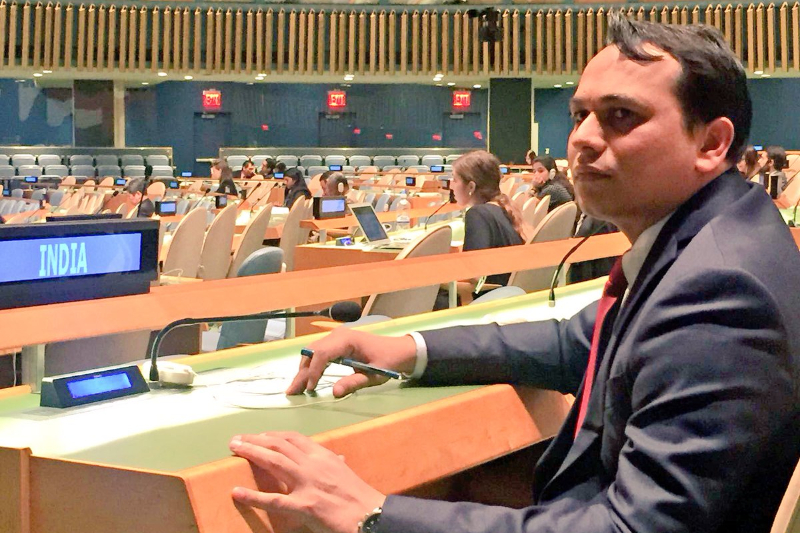- Sponsored -
India slams UN over regional disparity in Secretariat staff and peacekeeping positions

India on Thursday slammed United Nations over regional disparity in the UN Secretariat staff and peacekeeping positions. However, it called for proactively addressing the issue of equitable geographical representation. .
- Sponsored -
First Secretary in India’s Permanent Mission to the UN Mahesh Kumar said that while the UN Charter puts equitable geographical representation at the heart of human resources management, challenges continue to persist.
Speaking at a Fifth Committee (Administrative and Budgetary) meeting in the General Assembly on ‘Human Resources Management’, he said that out of a total UN Secretariat staff of 38,000, less than 10 percent are covered by the system of desirable ranges. “Even for these 3,600 posts, 64 countries are listed as un-represented or under-represented and 50 of these 64 are developing countries,” he added.
“Further, the number of member states in the category of un-represented or under-represented continues to increase since 2014. In addition, nearly 60 more developing countries are close to the lower level of their desirable range of representation and remain at risk of slipping into the under-represented category,” Mahesh Kumar added.
Kumar also pointed out that currently, a member state’s assessed rate of contribution to the UN’s regular budget has an overwhelming influence on determining the desirable range for staff representation. “This inherently puts developing economies at a serious disadvantage. These formulae may need to be re-visited,” he added.
With Secretary General Antonio Guterres presenting several options to reform the UN system, Kumar asserted that the suggestion regarding the inclusion of troops and police contribution for UN peacekeeping needs to be looked at seriously.
Kumar also added that increasing regional diversity of all the UN Secretariat international staff has been identified as one of the strategic actions by the Secretary-General in his global human resources strategy.
“Regional disparity remains especially stark at senior level positions,” he said adding that in peacekeeping positions also, the regional disparity is glaring.
“The regional disparity indicators point to a issue of serious concern. An effective solution to all these concerns is possible only through reforming the current system of desirable ranges and to proactively addressing the issue of equitable geographical representation,” he noted.
Welcoming the Secretary General’s global human resources strategy presented in continuation of his management reform proposals, Kumar hoped that the strategy will be able to address a range of persisting challenges, including the long-elusive goal of equitable geographical representation.
Also Read: India elected to United Nation Human Rights Council with highest votes
- Sponsored -
